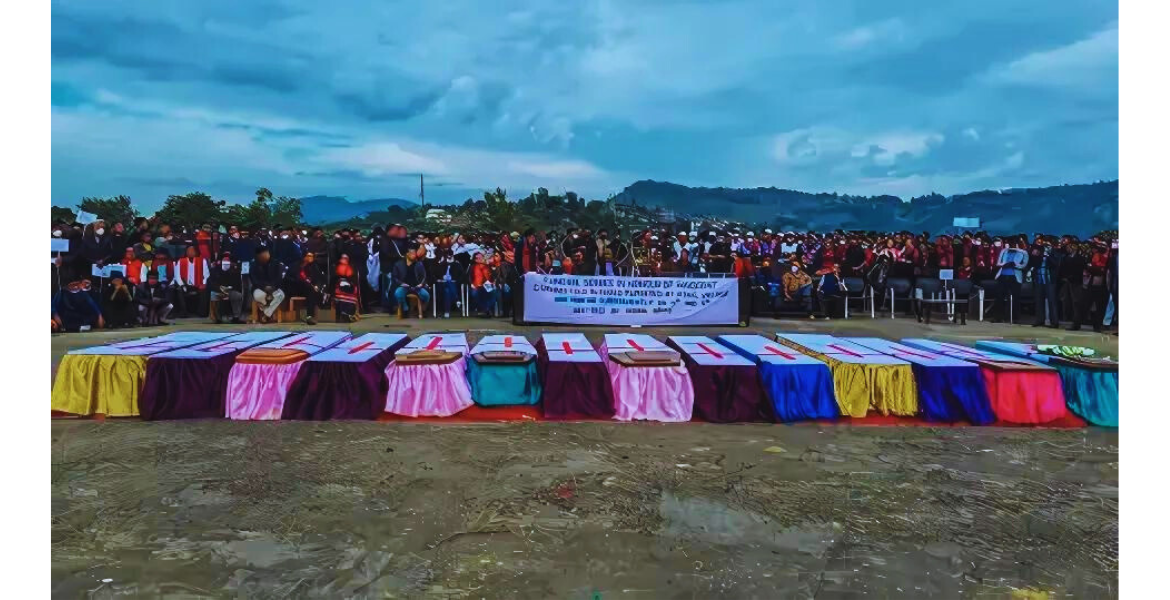. 28/09/2024 12:25 PM
Q.1: Why did the Supreme Court close the criminal proceedings against 30 Army personnel in Nagaland?
The Supreme Court closed the case due to the denial of prosecution sanction under the Armed Forces (Special Powers) Act (AFSPA). The court ruled that without this sanction from the Central Government, the proceedings against the Army personnel could not continue.
Q.2: What was the background of the Nagaland incident?

In December 2021, an Army commando unit mistook coal mine workers for militants in Nagaland’s Mon district. The misidentification led to the deaths of six civilians, all coal mine workers returning home in a van. Following this, a local search party retaliated against the soldiers, resulting in additional firing that killed seven more civilians and one Army personnel. A civilian was later killed during the response to a mob attack on an Assam Rifles camp.
Q.3: What role did the Special Investigation Team (SIT) play in this case?
The SIT was formed by the Nagaland government to investigate the incident. Upon completion of its investigation, the SIT filed a chargesheet in May 2022, indicting all 30 personnel of the 21 Para Special Forces involved in the shooting. However, due to AFSPA requirements, prosecution could not proceed without the necessary sanction from the Central Government.
Q.4: What does the Armed Forces (Special Powers) Act (AFSPA) entail?
AFSPA was enacted in 1958 to manage what the Indian government considered disturbed areas. It grants armed forces extensive powers, including:
The ability to open fire and use lethal force.
Authority to arrest without a warrant and conduct searches without prior approval.
Requirement for prior permission from the Central Government for prosecuting security personnel.
Q.5: What are the controversial provisions of AFSPA?
Section 3: Allows the Centre to declare any area as disturbed without the consent of the concerned state.
Section 4: Empowers officers to open fire, even resulting in death, and conduct warrantless arrests and searches.
Section 7: Mandates that prosecution of security forces members requires prior executive permission from central or state authorities.
Q.6: What were the implications of the Supreme Court's ruling for the Army personnel involved?
The Supreme Court’s ruling means that all FIRs and related proceedings against the 30 Army personnel have been closed. However, the court clarified that this does not prevent the Army from conducting its own disciplinary actions against the personnel involved in the incident.
Q.7: What were the public and governmental reactions to the incident and subsequent ruling?
The incident caused widespread outrage in Nagaland and the Northeast. Various groups, including the NSF and NSCN-IM, expressed deep disappointment over the Supreme Court's ruling, criticizing the continued application of AFSPA and calling for accountability and justice for the victims. The NSF demanded the Centre grant prosecution sanctions and consider the revocation of AFSPA in the region.
Q.8: How does this case reflect broader issues in the Northeast?
The Oting incident and the subsequent legal proceedings highlight ongoing tensions in the Northeast, particularly concerning military operations, human rights, and the application of AFSPA. The persistent violence in the region is fueled by ethnic diversity, economic challenges, and historical political instability, emphasizing the need for a nuanced approach to security and governance.